-
 Thanh toán đa dạng, linh hoạtChuyển khoản ngân hàng, thanh toán tại nhà...
Thanh toán đa dạng, linh hoạtChuyển khoản ngân hàng, thanh toán tại nhà... -
 Miễn Phí vận chuyển 53 tỉnh thànhMiễn phí vận chuyển đối với đơn hàng trên 1 triệu
Miễn Phí vận chuyển 53 tỉnh thànhMiễn phí vận chuyển đối với đơn hàng trên 1 triệu -
 Yên Tâm mua sắmHoàn tiền trong vòng 7 ngày...
Yên Tâm mua sắmHoàn tiền trong vòng 7 ngày...

- Publisher:Free Press; 1st edition (September 1, 1999)
- Language:English
- Hardcover:1248 pages
- ISBN-10:0684847035
- ISBN-13:978-0684847030
- Item Weight:0.035 ounces
- Dimensions:7.56 x 2.45 x 9.58 inches
- Best Sellers Rank:#1,142,934 in Books (See Top 100 in Books) #78 in Disorders & Diseases Reference #563 in Medical Encyclopedias #991 in Health, Mind & Body Reference
- Customer Reviews:4.5 out of 5 stars 80Reviews
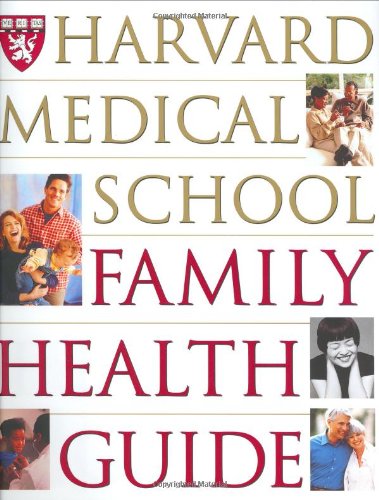
Mô tả sản phẩm
Product Description
The first health guide for the era of managed care is also the only one that will never go out of date. www.health.harvard.edu/fhg offers page and index searches for updated information on every entry. Today we all have a better chance of living a longer, healthier life than ever before -- but only if we know how to utilize the advances in medicine science has given us. Whether you depend on traditional fee-for-service health care or some form of managed care, you must make health decisions in partnership with doctors...doctors with whom you may only spend a few minutes. How can you sort out the confusing, often contradictory health information that is bombarding you daily and communicate clearly and effectively with your doctor? How can you gain access to the best care and evaluate the care you are getting? The Harvard Medical School Family Health Guide answers these essential questions and many more. The first health guide written specifically to empower readers in the era of managed care, it is the culmination of 200 years of clinical care, health education, and medical research -- bringing you the expertise of more than 7,000 health professionals from some of the nation's most esteemed hospitals and research centers. In this book, they have gathered the most authoritative, comprehensive, easy-to-understand, up-to-the-minute information about the diagnosis, treatment, and prevention of disease in every stage of life to help you:
- Make the most of the time you spend with your doctor.
- Decide when and if you need to see a doctor.
- Avoid dangerous drug interactions.
- Explore alternative treatments safely.
- Choose wisely among treatment options.
- Access emergency and other important information easily.
- Learn the most effective ways to prevent disease.
- Consult with the most renowned doctors in America, including Herbert Benson, T. Berry Brazelton, Robert Coles, and Richard Ferber.
- Receive the most current information from our Web site, which gives you free online updates. Harvard Medical School consists of world-renowned affiliated hospitals, clinics, and research foundations, which include:
Beth Israel Deaconess Medical Center Brigham and Women's Hospital* Cambridge Hospital Center for Blood Research Children's Hospital* Dana Farber Cancer Institute Harvard Pilgrim Health Care Joslin Diabetes Center* Judge Baker Children's Center Massachusetts Eye and Ear Infirmary Massachusetts General Hospital* Massachusetts Mental Health Center McLean Hospital Mount Auburn Hospital Schepens Eye Research Institute Spaulding Rehabilitation Hospital VA Boston Healthcare System (*CONSISTENTLY RANKED AMONG THE 10 BEST HEALTH INSTITUTIONS IN THE UNITED STATES) Throughout its history, Harvard's doctors have made important medical breakthroughs, including: the discovery of anesthesia the birth of brain surgery the first human organ transplantation (Nobel Prize) the discovery of the polio virus (Nobel Prize) the discovery of vitamin B12 as the cure for pernicious anemia (Nobel Prize) the discovery of how the human eye sees (Nobel Prize) the discovery of the aspirin-a-day prevention strategy for heart disease
Amazon.com Review
These days, when you only get to see your physician for 10 minutes after waiting several weeks for an appointment, you're often forced to get your information somewhere else. Harvard Medical School Family Health Guide will do what your doctor can't: answer your questions for hours on end. This richly packed compendium offers more than a thousand pages of health information compiled from the expertise of 7,000 physicians and researchers. Whether you're figuring out what your symptoms might mean, researching a disease, looking up a medication, learning about a body part or function, or formulating questions to ask your doctor, you can find the medical knowledge here--and in simple, layperson's language.
You'll undoubtedly make the most use of the diagnosis section, in flow-chart form. You identify a symptom, then answer a series of "yes" or "no" questions--where the pain is located, when it occurs, what makes it worse, and other related symptoms, for example. Each answer leads you to another question and/or to an action you should take, with page numbers where you can find more information about the condition you may have. Very clear and well organized! The Color Guide to Visual Diagnosis lets you match your symptom with close-up color photos of various skin infections, cancerous growths, fungal infections, insect infestations, and other conditions. The book also has chapters on lifestyle changes that will enhance health, such as nutrition, exercise, smoking cessation, and safe sex. Added bonuses are sections on eldercare, death and dying, drug interactions, and emergency care. This book is a treasure and a bargain! --Joan Price
From Library Journal
The linking of a web site to the text of this exhaustive compendium of consumer health information assures readers that it will never go out of date. Though the publisher promises that the site will be free, it will only "make sense" when used in conjunction with the printed version. The topics covered are not substantially different from those found in any other quality consumer health encyclopedia (e.g., Mayo Clinic Family Health Book, LJ 12/90), but the format differs substantially, and the treatment of all topics is more in-depth. Divided into ten parts, the text begins with a discussion on how to navigate current healthcare systems; the major areas then covered include health maintenance, how diseases are diagnosed, symptom management illustrated by numerous decision trees, and diseases and disorders. There are also sections on the management of health problems specific to men and women, adolescents, children, and the aged, with a profusion of line drawings and exceptionally understandable explanations of the benefits and risks of a variety of treatments, both surgical and nonsurgical. "Home remedies" for a variety of ailments are included, as are current opinions from Harvard physicians. Appendixes consist of medical terminology, information resources (including web sites), and medical forms. This low-priced, content-heavy work is highly recommended for all public and consumer health libraries.
-AMartha Stone, Massachusetts General Hosp. Lib., Boston
Copyright 1999 Reed Business Information, Inc.
From Kirkus Reviews
A massive, basic, and complete guide to family health mattersstaying well, diagnosing problems, finding help, dealing with the health care and insurance systemsit's all here. Komaroff (Editor in Chief of the Harvard Medical Publications) draws here on the resources of the hospitals, clinics, and research centers affiliated with Harvard Medical School. In Part 1, readers are instructed on ``Navigating the Health Care System.'' Included with the more standard information is a list of organizations that rate health plans, and an essay by Robert Coles on ``The Care of the Poor'' (reminding ussadlythat ``some people in America are at a substantial remove from doctors and from medical institutions''). There follows a series of illustrations showing ``How Your Body Works.'' Part 2 covers staying healthy (including advice on diet, exercise, and contraception). Part 3 explains the diagnosis of disease, and Part 4 sets out a lengthy and helpful series of symptom flow charts, for use when problems arise (for menstrual cramps, ``Have you recently stopped taking birth control pills?'', or ``Do you have fever?'') Part 5 is a system-by-system guide to ``Diseases and Disorders,'' ranging from the merely annoying to the catastrophic. Part 6 is concerned with caregiving (including home care), and Part 7 considers issues arising at the end of life. There follow sections on medications (including drug interactions) and first aid. Appendices provide lengthy guides to medical terminology, resources for further information, and assorted medical forms and charts. Readers will be able to update this guide from a website keyed to page numbers. In all, an enormous amount of sound information, precisely organized for easy reference. -- Copyright ©1999, Kirkus Associates, LP. All rights reserved.
About the Author
Medical Editor Anthony L. Komaroff, MD, is Professor of Medicine at Harvard Medical School, Senior Physician at Brigham and Women's Hospital in Boston, and Editor in Chief of Harvard Health Publications.
- Mua astaxanthin uống có tốt không? Mua ở đâu? 29/10/2018
- Saffron (nhụy hoa nghệ tây) uống như thế nào cho hợp lý? 29/09/2018
- Saffron (nghệ tây) làm đẹp như thế nào? 28/09/2018
- Giải đáp những thắc mắc về viên uống sinh lý Fuji Sumo 14/09/2018
- Công dụng tuyệt vời từ tinh chất tỏi với sức khỏe 12/09/2018
- Mua collagen 82X chính hãng ở đâu? 26/07/2018
- NueGlow mua ở đâu giá chính hãng bao nhiêu? 04/07/2018
- Fucoidan Chính hãng Nhật Bản giá bao nhiêu? 18/05/2018
- Top 5 loại thuốc trị sẹo tốt nhất, hiệu quả với cả sẹo lâu năm 20/03/2018
- Footer chi tiết bài viết 09/03/2018
- Mã vạch không thể phân biệt hàng chính hãng hay hàng giả 10/05/2023
- Thuốc trắng da Ivory Caps chính hãng giá bao nhiêu? Mua ở đâu? 08/12/2022
- Nên thoa kem trắng da body vào lúc nào để đạt hiệu quả cao? 07/12/2022
- Tiêm trắng da toàn thân giá bao nhiêu? Có an toàn không? 06/12/2022
- Top 3 kem dưỡng trắng da được ưa chuộng nhất hiện nay 05/12/2022
- Uống vitamin C có trắng da không? Nên uống như thế nào? 03/12/2022
- [email protected]
- Hotline: 0909977247
- Hotline: 0908897041
- 8h - 17h Từ Thứ 2 - Thứ 7
Đăng ký nhận thông tin qua email để nhận được hàng triệu ưu đãi từ Muathuoctot.com
Tạp chí sức khỏe làm đẹp, Kem chống nắng nào tốt nhất hiện nay Thuoc giam can an toan hiện nay, thuoc collagen, thuoc Dong trung ha thao , thuoc giam can LIC, thuoc shark cartilage thuoc collagen youtheory dau ca omega 3 tot nhat, dong trung ha thao aloha cua my, kem tri seo hieu qua, C ollagen shiseido enriched, và collagen shiseido dạng viên , Collagen de happy ngăn chặn quá trình lão hóa, mua hang tren thuoc virility pills vp-rx tri roi loan cuong duong, vitamin e 400, dieu tri bang thuoc fucoidan, kem chống nhăn vùng mắt, dịch vụ giao hang nhanh nội thành, crest 3d white, fine pure collagen, nên mua collagen shiseido ở đâu, làm sáng mắt, dịch vụ cho thue kho lẻ tại tphcm, thực phẩm tăng cường sinh lý nam, thuoc prenatal bổ sung dinh dưỡng, kem đánh răng crest 3d white, hỗ trợ điều trị tim mạch, thuốc trắng da hiệu quả giúp phục hồi da. thuốc mọc tóc biotin


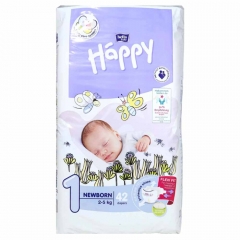




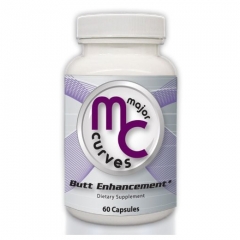
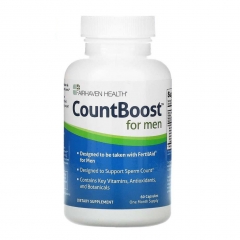
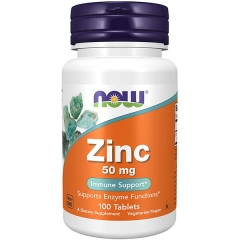
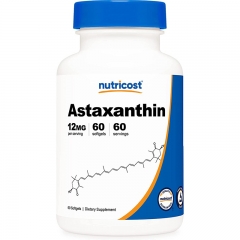


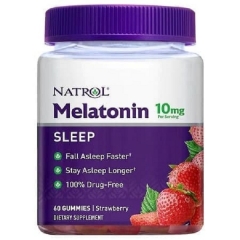

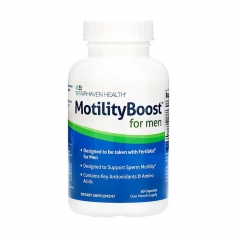
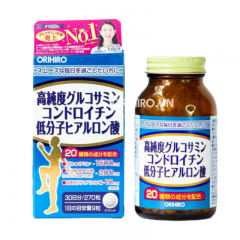



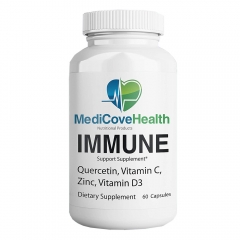




 KHUYẾN MÃI LỚN
KHUYẾN MÃI LỚN Hỗ Trợ Xương Khớp
Hỗ Trợ Xương Khớp Bổ Não & Tăng cường Trí Nhớ
Bổ Não & Tăng cường Trí Nhớ Bổ Sung Collagen & Làm Đẹp
Bổ Sung Collagen & Làm Đẹp Bổ Thận, Mát Gan & Giải Độc
Bổ Thận, Mát Gan & Giải Độc Chăm Sóc Sức khỏe Nam Giới
Chăm Sóc Sức khỏe Nam Giới Chăm Sóc Sức khỏe Nữ Giới
Chăm Sóc Sức khỏe Nữ Giới Chăm sóc Sức khỏe Trẻ Em
Chăm sóc Sức khỏe Trẻ Em Thực Phẩm Giảm Cân, Ăn Kiêng
Thực Phẩm Giảm Cân, Ăn Kiêng Bổ Sung Vitamin & Khoáng Chất
Bổ Sung Vitamin & Khoáng Chất Bổ Tim Mạch, Huyết Áp & Mỡ Máu
Bổ Tim Mạch, Huyết Áp & Mỡ Máu Bổ Mắt & Tăng cường Thị lực
Bổ Mắt & Tăng cường Thị lực Điều Trị Tai Mũi Họng
Điều Trị Tai Mũi Họng Sức Khỏe Hệ Tiêu hóa
Sức Khỏe Hệ Tiêu hóa Chăm Sóc Răng Miệng
Chăm Sóc Răng Miệng Chống Oxy Hóa & Tảo Biển.
Chống Oxy Hóa & Tảo Biển.